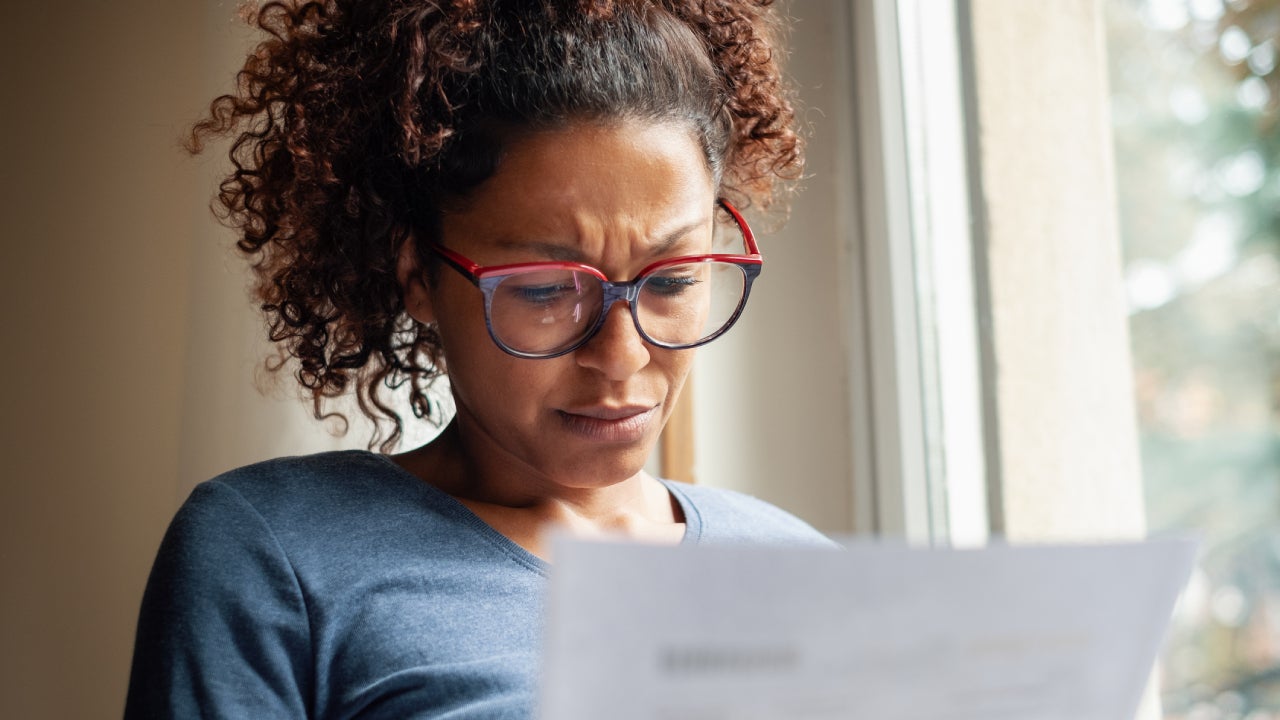How to terminate a license after death




If you have ever lost a family member or loved one, you know that in addition to the emotional weight the loss carries, there are also seemingly countless tasks that must be undertaken to ensure that their accounts are closed and all loose ends are tied up. If your loved one drove, one such task would be canceling their driver’s license. Although this may not seem like an important job, doing so quickly and efficiently closes the door to potential fraud or identity theft. We reviewed state requirements to help you understand how to cancel the driver’s license of a deceased person, so you can avoid the possibility of information falling into the wrong hands.
How to cancel a driver’s license after death
When considering what to do with a driver’s license when someone dies, location matters. In some states, the vital records office will inform the department of motor vehicles of the license holder’s death. If that’s the case in your state, you do not need to do anything for the license to be terminated. If you’re not sure about your state’s approach to driver deaths, your local motor vehicle department can help answer your questions.
If the deceased lived in a state that requires someone to cancel the license, here are the steps that you can take:
1. Collect the death certificate
The first step to take when seeking to cancel a loved one’s driver’s license is obtaining a death certificate. The certificate serves as legal proof of the individual’s passing. It’s a good idea to obtain multiple copies of the death certificate because you’ll need it for many purposes beyond canceling a driver’s license, including to notify creditors of the death, such as the deceased’s car insurance company.
The official death certificate can be obtained from the vital records department in the state where the death occurred. In some cases, it can be obtained from the funeral parlor handling the burial. To obtain the certificate in some states, you may need to provide identification establishing your relationship to the deceased individual. This could include a marriage license or birth certificate.
2. Visit the DMV
In a few states, you may be able to cancel your loved one’s license online. This is not true in all states, however, and you may need to visit the DMV where the deceased lived. You may be able to make an appointment, either online or via a phone call, which can save time. In other cases, the local DMV may operate on a first-come, first-served basis. If you do have to terminate the license in person, make sure you bring a death certificate and the license with you.
3. Cancel by mail
If you are unable to visit the DMV, most states allow you to cancel the driver’s license by mail. You will generally need to send:
- A letter explaining you would like to cancel the deceased driver’s license
- A notarized or certified copy of the death certificate
- The deceased’s driver’s license
John Yanchunis, head of class action and cybersecurity practices at law firm Morgan & Morgan, suggests that loved ones prioritize the closing of accounts and take the necessary steps to secure personal information as soon as possible to prevent the extremely stressful and costly process of having to prove fraud.
Yanchunis also recommends reviewing the information provided by the Identity Theft Resource Center (ITRC), a national nonprofit organization offering free assistance to individuals impacted by identity theft: “They recommend obtaining at least 12 copies of the official death certificate in order to immediately notify relevant credit card companies, banks, financial advisors, etc., determining any outstanding debts and how they will be dealt with, ordering copies of and reviewing the deceased’s credit reports and notifying all relevant agencies (Social Security, Veterans Administration, insurance companies, etc.).”
Identity theft and the deceased
It may surprise you to find out that even the deceased can be victims of identity theft. Commonly known as “ghosting,” scammers search for information about recently dead relatives in a number of ways, including:
- Obituaries: Published death notices can be mined for home address, date of birth and names of spouses or children — all useful information when verifying identity or applying for credit.
- Mail: Someone can find bank or mortgage information, tax-related documents and even part or all of a Social Security number in the mail.
- Social media: Similar to an obituary, social media accounts may be able to be viewed publicly by anyone. Identity thieves can mine a social media account to find out birthdays, phone numbers, previous relationships and more. For that reason, it is important to close out all social media accounts as soon as possible.
Identities of the deceased are used to apply for loans, open credit card accounts and even sign up for utilities or purchase smartphones.
If the accounts are not properly closed and canceled for being fraudulent, the next of kin can be ultimately affected. Yanchunis explains, “A spouse of a deceased might be pursued for collection in those states where a spouse is liable for the care and necessities of a spouse. There would be, of course, a defense to any claim because the deceased spouse has been a victim of fraud, but a living spouse might go through a personal hell having to establish that their deceased spouse never took out the alleged loan and that, as a result, the surviving spouse is not responsible.”
That is why it is so important to prevent identity theft in the first place by terminating accounts and IDs, even if they seem harmless. An experienced cyberthief or fraudster could do damage if they get hold of someone’s sensitive information. Canceling a deceased person’s driver’s license should be part of the vital process. According to the Virginia DMV, “This simple procedure [of canceling a driver’s license] removes the deceased’s name from DMV’s mailing list. By doing so, you can avoid future mailings and prevent others from possibly using the name for fraudulent purposes.”
The deceased are potentially easy targets because their names, ages, family members and occasionally other personal details such as the names of their parents are publicly available in obituaries published in papers and online. Not only that, they are no longer monitoring their credit to determine if their identity has been stolen.— Letha Sgritta McDowell, CELA, CAP, Managing Member and Attorney, McDowell Law Group
What else should be canceled?
Now that you have a better idea of how a deceased relative could be compromised, it is important to realize that other items need canceling to ensure that personal information does not get into the wrong hands. The following are a few other vehicle-related items that should also be canceled or transferred. Fortunately, some of the items listed can be done together to save you time.
Car title
The car title lists the owner of the vehicle and their home address. You will need to transfer the title to sell the car in the future or if you wish to continue driving the vehicle. You will need to visit the DMV with the death certificate and the original title certificate to transfer the title. You will probably need to fill out and sign the state’s version of an affidavit certifying there is no probate before the vehicle title may be transferred legally to you.
Car registration
Once the car title transfer is complete and the vehicle is in your name, you can register the car. Since nearly every state has minimum car insurance requirements, you will need to get car insurance before registering the vehicle and may also need a smog or emissions inspection, depending on the car’s age and local laws.
License plates
The license plates of a deceased person’s vehicle should be turned in with the driver’s license, along with a certified or notarized copy of the death certificate and a cover letter. You may return the license plates to the DMV or mail the plates in. Consult with the state’s DMV office for the mailing address or further information on how to return the plates.
Handicap placards
The DMV also issues handicap placards that can be hung on the rearview mirror to park in disabled spots. If you return the deceased person’s driver’s license and the vehicle’s license plates, you should also return the handicap placard, if applicable.
Auto insurance
To cancel auto insurance, call the carrier or the deceased’s insurance agent to notify them. They will likely request that you fax or email them a copy of the death certificate before canceling the policy.
If the deceased person is insured on a family auto insurance plan with other people, you still need to contact the insurance company. This will allow you to transfer the policy to a new first named insured if necessary and ensure that coverage is not impacted for the remaining policyholders.
Car loans or leases
A car loan is not forgiven upon death. The balance will have to be settled from the estate’s funds. You may be able to take over the lease or loan if you contact the lender with documentation showing you are the beneficiary, although whether it is permissible depends on the lender and state laws.
If you do take on the deceased’s car loan or lease, you will need to get full coverage car insurance as well to cover the lender’s investment in the vehicle. The best way to do this is to shop around and get multiple car insurance quotes to compare rates.
Roadside assistance or toll accounts
If the deceased person had a roadside assistance account from AAA or another company, or if they had an electronic toll account, such as an EZ-Pass or FasTrak, these should be canceled or transferred by contacting the company holding the account. The same is also true if they had parking permits through their job or apartment complex.
How to cancel a driver’s license in each state
As mentioned, not all states require someone to cancel a driver’s license on behalf of the deceased. Certain states receive notifications of drivers who have passed from their vital records department and process the cancellation automatically. The states below provide additional information about how to terminate a license after death:
You may also like

What is short-term life insurance?

What to do after a hit-and-run in Georgia


